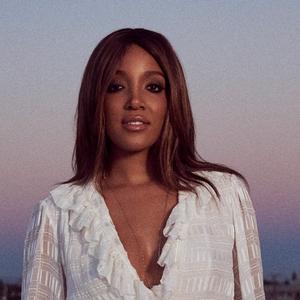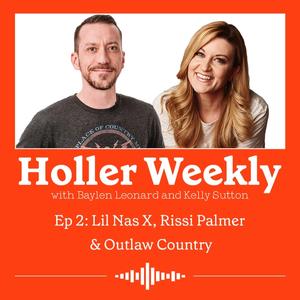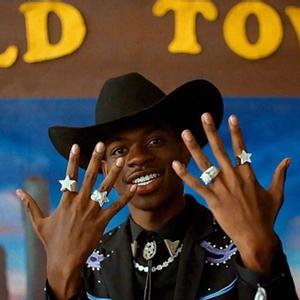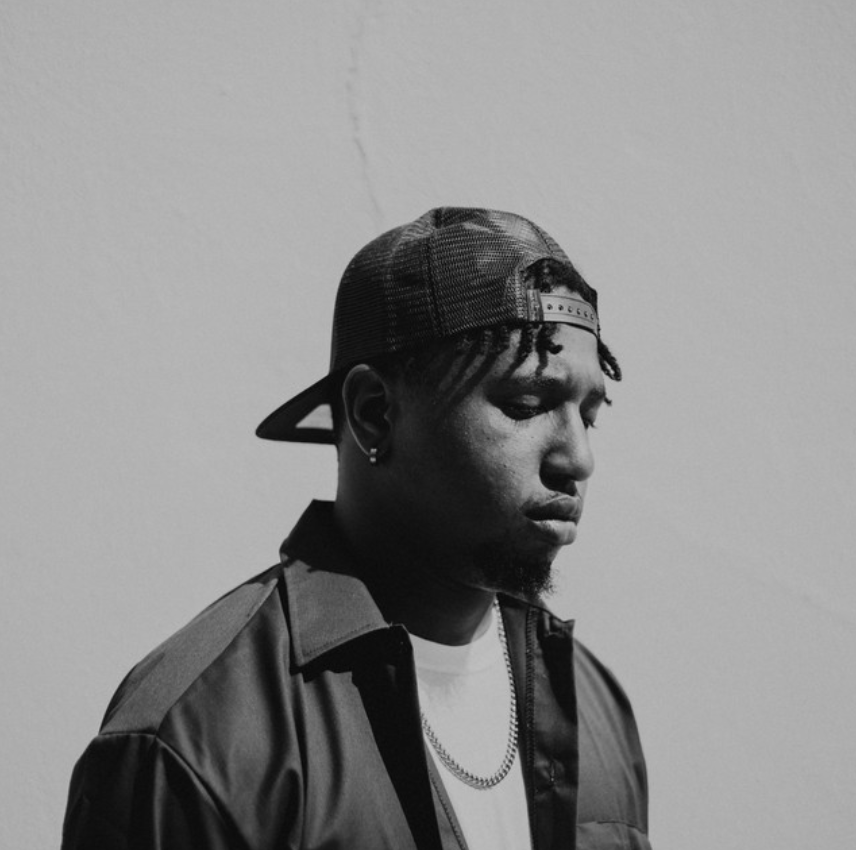
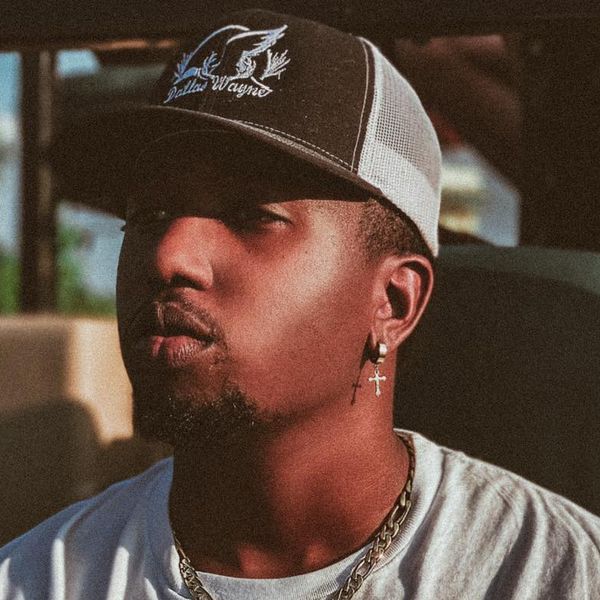




Link copied

A warm, out-of-tune fiddle carves out a hoedown-ready groove as a propulsive acoustic guitar chugs through some familiar chord changes. By the time the twangy electric guitar intro arrives on RVSHVD’s single ‘Dirt Road’, you think you know what you’re in for: a country-song-by-numbers, in the best way possible.
But then you hear a woman remark, “Troy Taylor, you da GOAT” — a producer tag; musical shorthand that’s as ubiquitous in contemporary hip-hop and R&B as it is unheard of in country.
Troy Taylor has a lengthy list of credits to support his alleged “Greatest Of All Time” status: he’s worked with Aretha Franklin, Whitney Houston, The Isley Brothers and more. But Taylor had never attached a tag to a country song. He’d made a hit country song — Breland’s ‘My Truck’, an undeniable country-trap-pop ode to America’s favorite vehicle that just went platinum. The idea to attach the tag, though, came from Taylor’s co-producer and frequent collaborator, Kal V. Kal took an outtake from his sessions with RVSHVD — the singer saying “C’mon, Kal” — and put it right at the top of ‘Dirt Road’. It’s now his tag for making country music with RVSHVD.
After the tags, a bouncy trap beat drops and RVSHVD starts singing, his lilting tenor adorned by a gentle, unaffected Southern drawl. The result is truly not like anything you’ve ever heard - “a little country and a little street,” as RVSHVD puts it in the song, but without any of the appropriative tension of so many previous country/hip-hop marriages. In its place are richly layered plays on country’s aesthetic cliches, and a new take on one of the genre’s most tired topics: the appeal of dirt roads.
“They'll listen to ‘Dirt Road’ and be like ‘This isn't country, these are trap lyrics’” says RVSHVD about some of the responses he’s received to his music. “I'll be like, ‘Naw, that's just what we do down here”. Essentially, the song epitomizes what country music’s gatekeepers have always pretended the genre is about: honesty.

23-year-old Clint Rashad Johnson grew up in rural Willacoochee, Georgia, about a three hour drive south of trap’s Atlanta birthplace; “We ain't even got a red light” he laughs. His mom works in the local school cafeteria, and would slip him extra pizza when no one was looking, while his dad worked a slew of odd jobs, often blasting country music while Johnson helped him pressure wash houses or scrap cars. “Sweet Thing” by Keith Urban was a particular favorite.
Johnson was intrigued by music early, singing in church choir at the behest of his mother, while listening to foundational hip-hop like Lil Wayne and Tupac. Trey Songz was the first artist who made him realize singing, not rapping, might actually be cool. His first MP3 player had a recording function, which allowed him to start realizing some of his musical ambitions; he would burn an instrumental onto a CD, and play it while rapping or singing along - recording the results by holding one headphone to the speaker and one up to his mouth. “The sound would suck, but I thought I was doing something,” he recalls.
It was around that time that he started listening to more country music, starting with popular artists like Florida Georgia Line, Jason Aldean and Luke Bryan, then going back to learn more about the music’s history. When he started college at nearby Abraham Baldwin Agricultural College in Tifton, Johnson joined the music program with the aim of making hip-hop or R&B. He felt demoralized after a few years though, and would switch to a music journalism major.
Nevertheless, Johnson kept making music outside of class, including his first experiments with country in 2018. At first, he wasn’t sure how to go about it; “A big thing about country is that everybody had bands,” he says. “It wasn’t like rap, R&B and pop, where you could basically go on the internet, find a beat and get on it.” As it turned out, he could use exactly the same process, “I just started searching ‘country instrumentals’ or ‘country beats’ and I found a bunch of them - I started recording on top of them like you would a rap song. With country, it was so much easier for me to write because I actually knew it more than I thought I did - I guess it’s because I didn't see many people like me doing it.”
His process not only mirrored that of the similarly timed 'Old Town Road' by Lil Nas X; it inverted country convention, in which the melody and lyrics often precede the harmonies. The eventual result of this was Johnson’s 2019 EP Memories; a showcase of the singer’s gift for melody and total mastery of the contemporary country songwriting idiom. “Up to that point, it was my best project — and I had more fun doing it. It felt different. It felt real.”
Johnson’s ability to essentially freestyle country melodies over preexisting beats led to an unexpected breakthrough. As he tried to come up with ideas that might catch attention on platforms like TikTok, he realized that his covers got the most recognition. While he was focused on country music, Johnson decided to rap Roddy Rich’s ‘Ballin’’ over a country-sounding beat - one similar to what he’d used on Memories. The track, which already had a distinctive melody, was perfect for this exercise: souped up with harmonies and acoustic guitar alongside Johnson’s seamless twang, it sounded ready for country radio.
“It started taking off, and I was like, ‘I'm not gonna say anything, because I don't want to jinx it,’” says Johnson. “One morning I woke up and my followers had just shot up. My homeboy was like, ‘You know you're on Shade Room, right?!’” Today, the video has 7.3 million views on YouTube, and Johnson has supplemented it with a slew of mash-ups of both hip-hop and country radio hits — ‘The Box’, ‘Drip Too Hard’, ‘ROCKSTAR’ etc. — all performed with the same effortless blend that’s only possible because of Johnson’s deep fluency in both styles.
Johnson considers himself a country artist, but his larger concern is with why the genre’s boundaries have been so rigid — for some, at least. “Lil Nas X was shunned from the country charts for incorporating the genre into his song, but country artists now do it all the time,” he wrote in a post on his blog called “Is Lil Nas X Country?” in 2019. “If you turn on country radio right now, you're going to hear a little rock in this song, a little pop in that song, and some R&B in the next. I just want to know why country music can incorporate other genres but other genres can't incorporate country”.
In the wake of 'Old Town Road' and its culture-shifting success, Johnson found a musical community, but not with fellow Georgian country singers. “I guess they didn't like me,” he explains. “I would hit them up, they didn't respond.” Instead, he found collaborators in the Atlanta hip-hop and R&B scene. Breland - an Atlanta-based singer and producer whose work spanned genres before he found his niche in country - held a social media contest to find a verse for what would become his song 'In The Woulds'; Johnson won, earning his first major label writing credit.
Breland invited him to Atlanta to record his verse; that’s where he would meet Kal V and Troy Taylor. Although Chase Rice would eventually sing on the final version of the song instead, the trip proved formative. Johnson remembers being incredibly nervous, but in the end the experience was both validating and would lead to future collaborations. “It felt good hearing Troy Taylor, the guy who worked with one of my favourite singers in Trey Songz - tell me that I was dope” he says.
It’s part of a velvet revolution instigated by the producers through their work with Breland and RVSHVD. Even if no one in Nashville lets them in a studio, they have no problem creating potent, catchy country songs on their own turf - songs with a healthy dose of the panache that so much of contemporary pop country lacks.
'My Truck', which reached No. 28 on Billboard’s Hot Country Songs chart, was born of exactly that realization. “I was like, ‘I can do that!’” Kal V, a Buffalo, N.Y. native, remembers when hearing ‘Old Town Road’ for the first time. “A couple friends and I were at Troy Taylor's house, drinking tequila and making jokes about making our own country music. We went downstairs and did it that night.”
He’d never produced a country song before, but suddenly a whole new realm of possibilities was opened up to him. Kal was so impressed by Johnson’s music, that he went out to Tifton and stayed with him while they worked together. Now, his peers in Atlanta are looking to him for advice about how to get into country music. “Everybody's asking me what they can do to get in that type of game,” he says. “I'm like, man, I don't wait for anybody to say my name. I just go.”
Johnson is still waiting for his Breland-style breakthrough. He hit No. 4 on Billboard’s Country Digital Song Sales chart with his latest single, ‘Raised Up’, but the only country artist who’s reached out to collaborate so far is Trey Lewis of 'Dicked Down In Dallas' quasi-fame (he appears on the recently released remix). “When I decided to make country music, I knew I was going to face obstacles,” he wrote in another blog post, titled “What It Means To Be A Black Country Artist.” “I knew to reach out to a different community was going to be tough due to the fact I am not a white man; I am a black man making country music. I refuse to change my style or anything else about me, because I appreciate country music and grew up on it much like everyone else around me in my hometown of Willacoochee.”
One of the most powerful parts of Johnson’s music is his insistence on claiming not just country music, but the country itself — the land on which he and his family before him lived and worked — as his birthright. ‘Raised Up’, ‘Dirt Road’ and 'My Side Of Town' all center on equal parts inclusivity and ownership, painting a country that is his because it’s all of ours. “My grandpa, he grew up in the country. He was a farmer. My great-grandmother, she was Native American,” he says. “All my life, all my family did was work. They grew up in the country, I grew up in the country.”
“I got roots here,” he concludes, referring to the roots described in his songs, “but to be a Black man doing it, it's different.’
Johnson has had some record labels reach out, but is currently independent and partnered with EMPIRE for distribution. He’s had some writing sessions in Nashville, and even been in the studio with Kal and Mickey Guyton, according to the producer. “Oh, he's gonna blow,” Kal insists. “Country music is all about storytelling, right? He has a story to tell. Once he's able to tell that story, it's gonna be something different than what maybe country listeners are used to. But maybe they need to hear, through something that they understand, what it means to be Black today.”
In the singer’s mind at least, there’s no doubt about whether he’s the one to convey those lessons. “In some ways, it is harder for a Black man making country,” Johnson says, “but I feel like they can't deny me. I don't want to sound cocky, but nobody else is doing it like me”.
RVSHVD's latest single, 'Raised Up', is out now via EMPIRE. RVSHVD is this week's featured artist on Holler's Introducing playlist - listen below.

You can subscribe to RVSHVD's music from Holler's selected partners below:

Items featured on Holler are first selected by our editorial team and then made available to buy. When you buy something through our retail links, we may earn an affiliate commission.


